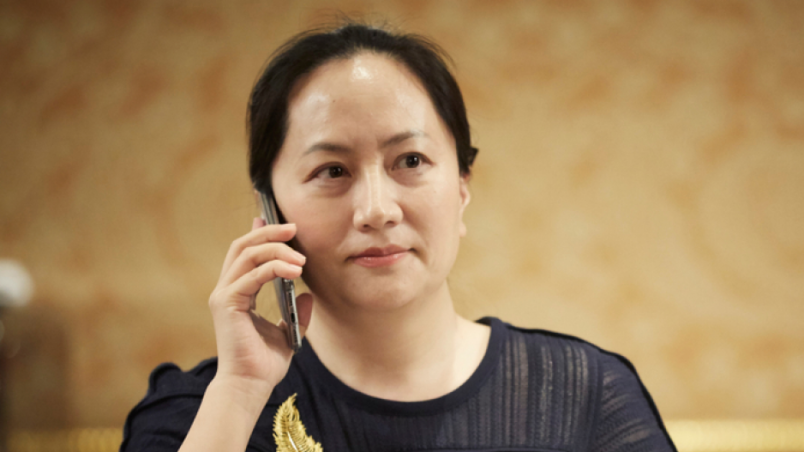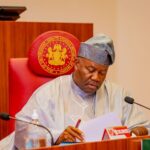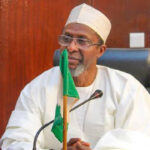When Washington needed Canada’s help to apprehend a top Huawei executive, officials in the White House, Congress and diplomatic corps were informed of what would happen hours before politicians in Ottawa. Sources from the U.S., Canadian and Chinese governments explain how the plan unfolded.
Meng Wanzhou was unaware the eyes of U.S. law enforcement were watching her at the airport in Hong Kong as she boarded a Cathay Pacific Airlines flight to Vancouver last December.
A description of her clothing – white T-shirt, dark pants and white shoes – and that of colleague Ji Hui, her travelling companion, was sent to the FBI and the U.S. Department of Justice, and to the RCMP and Canadian Border Security (CBSA) agents in Canada.
After Flight 838 touched down at 11:13 a.m. on Dec. 1, Ms. Meng – chief financial officer of the Chinese telecom giant Huawei Technologies Co. Ltd. – was met by border-services agents and formally arrested hours later by the RCMP. The United States has requested her extradition on fraud charges related to violations of U.S. sanctions against Iran.
The detention of Ms. Meng, whose father, Ren Zhengfei, founded the Shenzhen-based multinational, generated headlines worldwide and threw Canada-China relations into a deep freeze. It has also trapped Canada in a power struggle between China and the U.S., which views Huawei as a national-security risk and a pawn of the ruling Communist party.
Shortly after Ms. Meng’s arrest, Prime Minister Justin Trudeau told Canadians: “We were advised by [the United States] with a few days’ notice that this was in the works.”
But The Globe and Mail has learned that as officials at the top levels of the U.S. government orchestrated the arrest, they did not inform Mr. Trudeau or U.S. President Donald Trump.
U.S. officials knew on Nov. 29 that Ms. Meng would be on the Cathay Pacific Flight, but waited until Nov. 30 to ask Canada to arrest her when she arrived in Vancouver on Dec. 1. She was intercepted before she could board a connecting flight to Mexico later that day.
“The Chinese thought it very much was a Canadian-U.S. political conspiracy,” said David MacNaughton, Canada’s former ambassador to Washington. “That is what I have heard from them. They thought at the highest levels that the political people in Canada and the United States got together to figure out how we were going to do this. Well, it wasn’t that at all.”
He said there was no discussion between Canadian and U.S. officials before the extradition request was made.
One year later, The Globe and Mail has pieced together an indepth account of those events in late 2018. The Globe spoke to senior Canadian and U.S. officials, as well as sources at Huawei and the Chinese government for this story, and is keeping their identities confidential so they could discuss Ms. Meng’s arrest and the severe diplomatic fallout that followed.
One of Mr. Trudeau’s closest advisers said the view inside the Canadian government is that John Bolton, the former White House national-security adviser, was the driving force behind Ms. Meng’s arrest. The Globe has been unable to confirm with Mr. Bolton that this was the case.
Mr. Bolton, who has said he knew in advance about the arrest, is known as a foreign-policy hawk when it comes to China and Iran. He left the White House in September after a dispute with Mr. Trump over Ukraine and Middle East policy.
The Trudeau adviser said Mr. Bolton and other like-minded officials in the U.S. government were well aware of the significance of the arrest they were asking Canada to make. The adviser and a senior national-security official say they are convinced the U.S. picked Canada to arrest Ms. Meng – and did so in a last-minute rush – because they believed the Justice Department and the RCMP would honour the extradition request.
Mr. MacNaughton said there is no doubt the Trump administration had several agendas in going after China and its global telecom champion, Huawei. The U.S. wants its allies to ban the company’s equipment from their nextgeneration 5G mobile technology.
But the request for the arrest “came on us suddenly, and we followed the process, and there was little political involvement at the last minute – almost after the fact,” Mr. MacNaughton said. “I don’t know what would have happened if we had more notice, but the reality is we didn’t.”
On Nov. 30 and Dec. 1, leaders of the G20 nations met in Buenos Aires for two days of talks. The meetings came at a difficult time in international relations. After months of often-contentious negotiations, Canada, Mexico and the United States were close to finalizing a new trade deal. Meanwhile, the U.S. and China were exchanging blows in an escalating trade war.
Mr. Trudeau was in the final meeting of the summit – a gathering that also included Mr. Trump and Chinese President Xi Jinping – when an official slipped a note to his principal secretary, Gerald Butts. It said Ms. Meng was about to be arrested. Sources say the Prime Minister was caught off guard by the news. He did not raise the matter directly with China’s leader or any other Chinese official that day.
Mr. Bolton was at the G20 summit with the U.S. contingent. He told U.S. reporters on Dec. 6 that he did not inform Mr. Trump about the arrest of the Huawei executive, even though the President was heading into a 21⁄2-hour private dinner with Mr. Xi at the conclusion of the meetings. At that dinner, the two leaders agreed to a 90-day truce in the U.S.-China trade war.
The circle of elected officials and political appointees with advance knowledge of the arrest in the U.S. was much greater than in Canada. Top U.S. decision-makers also knew in advance.
Among those briefed on the matter, U.S. officials say, were acting attorney-general Matt Whitaker and legislators on the U.S. Senate select intelligence committee, Republican chair Richard Burr and ranking Democrat Mark Warner.
Then-U.S. ambassador to Canada Kelly Craft (now her country’s envoy to the United Nations), was also brought into the loop. On Nov. 30, in a secure room at the U.S. consulate in Toronto, senior U.S. Justice department officials briefed her extensively, sources say.
The U.S. Justice Department would not say exactly when it informed the White House about the extradition request to Canada. “The U.S. Department of Justice does not comment on extradition-related matters until a defendant is in the United States,” senior communications adviser Nicole Navas Oxman said in an e-mail.
Chinese sources say Mr. Xi found out about the arrest after the postsummit dinner with Mr. Trump on Dec. 1. Huawei’s chief legal officer and a member of the company’s board of directors, Song Liuping, alerted Beijing not long after Ms. Meng was taken into custody, Huawei sources say. Ms. Meng had called him from Vancouver about four hours after she was detained.
Chinese and Huawei sources say Mr. Xi was infuriated that he learned about the arrest from his own officials and not from the Canadians.
A Canadian foreign-affairs official told The Globe on background that the federal government reached out to Chinese diplomats in Canada as soon as Ms. Meng was arrested. This occurred in both Ottawa and Vancouver. Within a few hours, Chinese diplomats had consular access to Ms. Meng.
Both the Chinese embassy in Ottawa and the consulate in Vancouver say they learned about the arrest from Beijing, not from the Canadian government.
“In accordance with the consular agreement between China and Canada, the Canadian side should inform the Chinese diplomatic missions in Canada immediately of its unreasonable detention of Ms. Meng Wanzhou,” the embassy said in a statement. “But the Canadian government failed to do that, the Chinese side first learned about the situation from other channels. We lodged stern representations with the Canadian side as soon as we learned about the relevant information.”
The Chinese consulate in Vancouver said in a statement that “it had not been informed by Canadian foreign affairs officials about the arrest of Ms. Meng Wanzhou” as would be expected under diplomatic protocol, especially if the individual is a highprofile Chinese corporate executive.
A source said Jody WilsonRaybould, justice minister and attorney-general at the time, was aware of the U.S. arrest request on Nov. 30, and her office passed the information on to the Privy Council Office, the source said. The PCO reports to the prime minister. Mr. Trudeau’s office said he heard about the impending arrest Dec. 1. (The Globe and Mail)

 Join Daily Trust WhatsApp Community For Quick Access To News and Happenings Around You.
Join Daily Trust WhatsApp Community For Quick Access To News and Happenings Around You.


